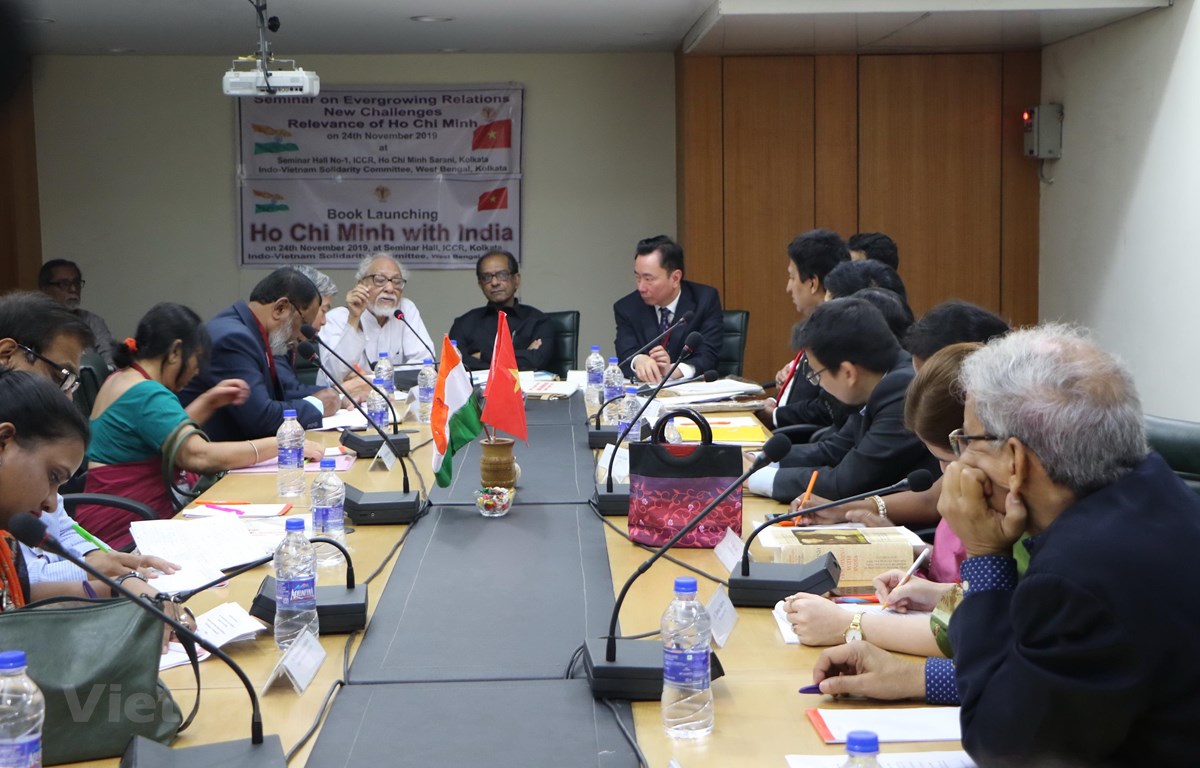
At the event (Photo: VNA)
At the event, delegates discussed the similarities on the path of national liberation of the two leaders, Mahatma Gandhi and President Ho Chi Minh.
Dr. Nguyen Tran Tien, a lecturer from the Faculty of Oriental Studies, University of Social Sciences and Humanities, affirmed that Gandhi's thought on truth, peace and non-violence that inspired many struggles against foreign aggression in the world, including the revolution in Vietnam led by Ho Chi Minh.
He emphasized that the leadership and messages of freedom and humanity of Gandhi and Ho Chi Minh brought the two nations to freedom and independence.
On their way to liberating the nation, Gandhi and Ho Chi Minh "met" in philosophical thought with the same lofty goal: Striving to liberate the people from the oppression and exploitation of the imperialists and colonists, he added.
Vietnam-India relations are built on a solid foundation, based on long-standing, sustainable links in cultural history, understanding, trust as well as mutual support in struggle for independence, freedom, unity, territorial integrity and in the cause of national construction and development.
The two countries have very good political-diplomatic relations and high political trust. That trust has always been strengthened through the frequent exchange of high-level delegations of the Party, State, National Assembly and Government.
On the sidelines of the seminar, a painting exhibition about President Ho Chi Minh was also organized. The exhibition displays about 40 paintings of President Ho Chi Minh's visits to India and his famous quotes.
Besides, a launching ceremony of the book "Ho Chi Minh with India" compiled by the Center for Indian Studies under Ho Chi Minh National Academy of Politics was also held.
The book, which is in Vietnamese and English, is divided into four parts. The first part includes writings, letters, telegrams and poems about and with India of President Ho Chi Minh. The last part is photos about Uncle Ho's activities with India and Vietnam-India relations. The second and third parts have more pages, which summarize writings of Vietnamese and Indian scholars about Ho Chi Minh, and about Vietnam-India relations under the lens of Ho Chi Minh’s thought./.
BTA